
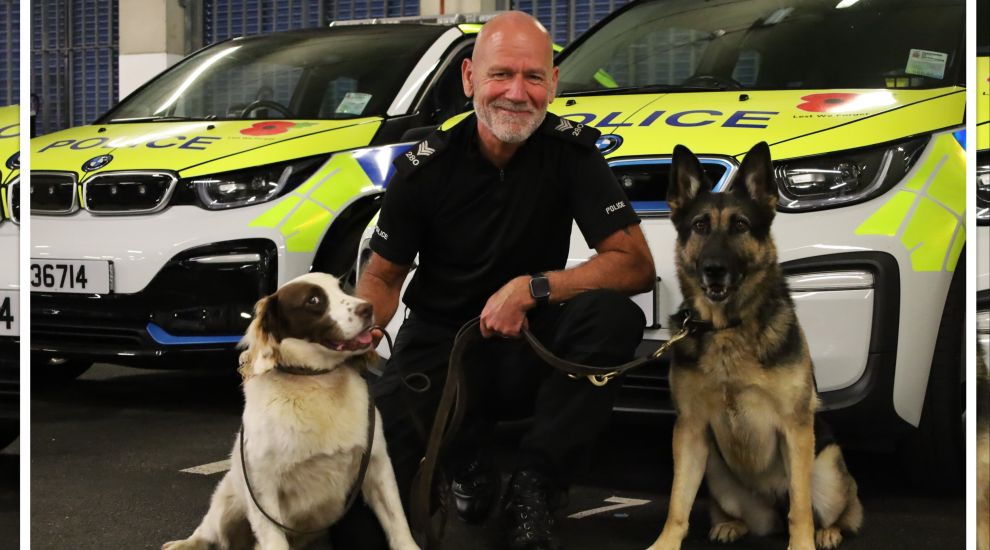

For Dave Bisson, every day for nearly two decades has been bring your dog to work day...
After 22 years with the police, which includes around 19 years as a dog handler, Mr Bisson has decided it is time to hang up the leash.
The islander will have many moments to look back on as he reflects on his career, from chasing down criminals to life-saving discoveries that made front-page news.
But what does it take to be a dog handler? A lot of commitment, for a start.
"Off duty, I still have responsibility for the dogs," Mr Bisson explained.
"I have free time, but I still have responsibility of walking, feeding and caring for them – which I have done for nearly 19 years – so there is never an off day.
"The only time I'm not doing anything with a police dog is when I'm physically on holiday, in which case they go into kennels."
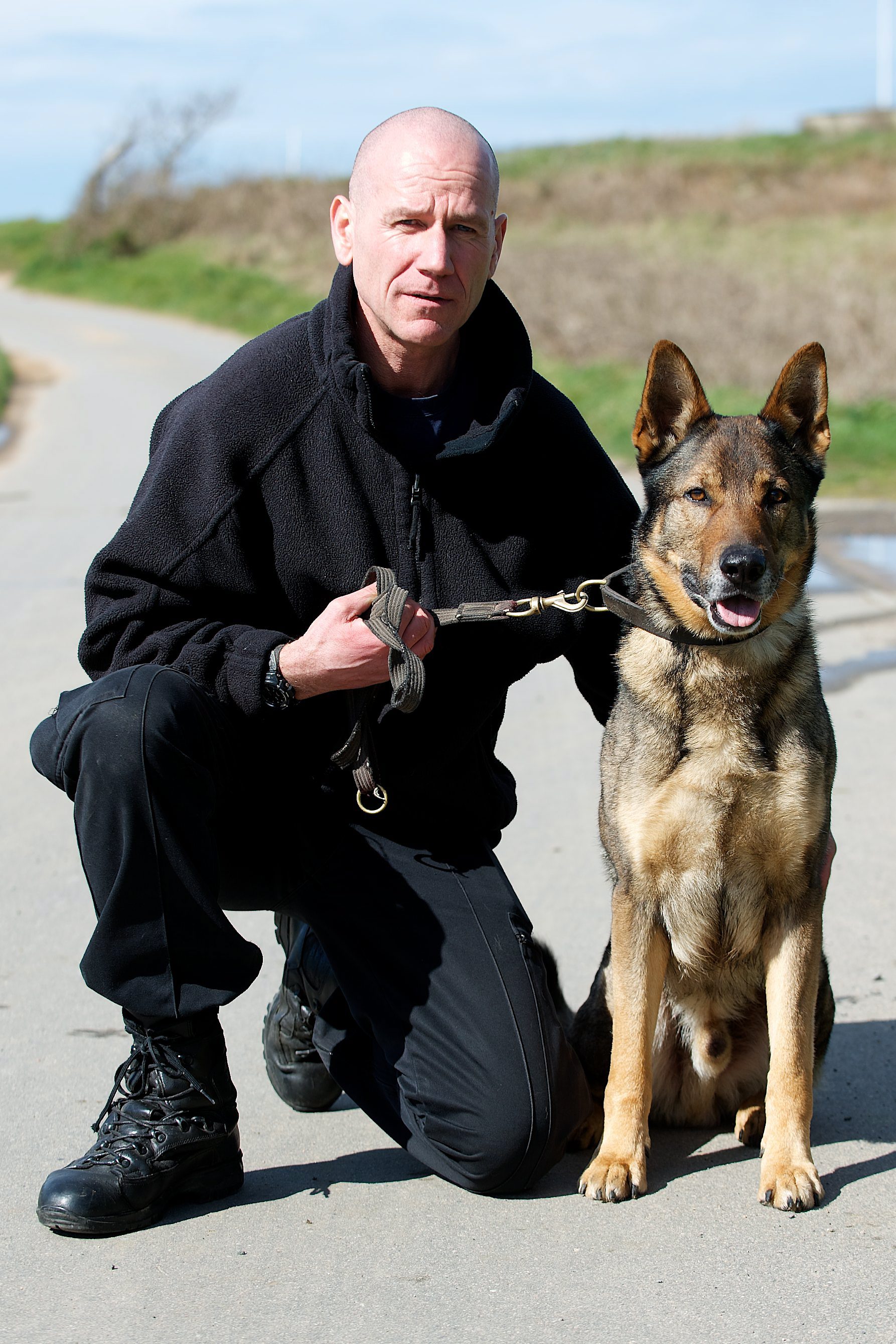
Pictured: David and his first dog, a German shepherd called Thor.
The 58-year-old joined the force in 2002 with the hope of becoming a dog handler.
"Prior to becoming a police officer, I had never owned a dog," Mr Bisson continued.
"It was through watching, back then, programmes on Discovery Channel about police dogs, military dogs and thinking 'wow, I'd like to do that'."
Fortunately, a change in policy meant that the post became available earlier than would have previously been the case and Mr Bisson joined the dog section in 2006.
He initially worked with a German shepherd called Thor, who he described as a "outstanding first dog".
Thor made headlines in 2012 when he discovered a woman in a derelict property who had been missing for seven weeks.
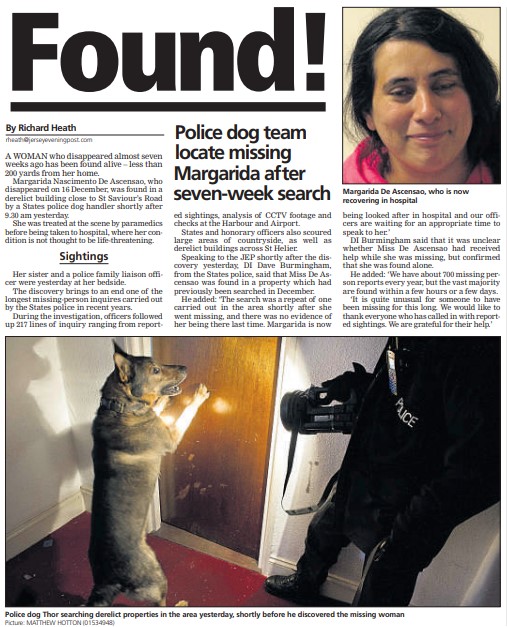
Pictured: How Thor's life-saving discovery was reported in the JEP in 2012.
Mr Bisson said: "It was pitch black inside because it had all been boarded up, and Thor gave an indication.
"He was showing interest on this pile of discarded carpet tiles.
"I've gone over with my torch and started moving the tiles away... I saw what I thought was a dead body."
Fortunately, the woman was still alive and – thanks to Thor and Mr Bisson – was taken to hospital where she went on to make a full recovery.
"We ended up getting a commendation for that and Thor got a box of Bonio's [dog biscuits] off the inspector.
"[He was] a brilliant all round first dog, was no trouble and easy to train."
By the time Thor retired in 2013, Mr Bisson had also spent around five years working with his first drugs detection dog – a springer spaniel called Merlin.
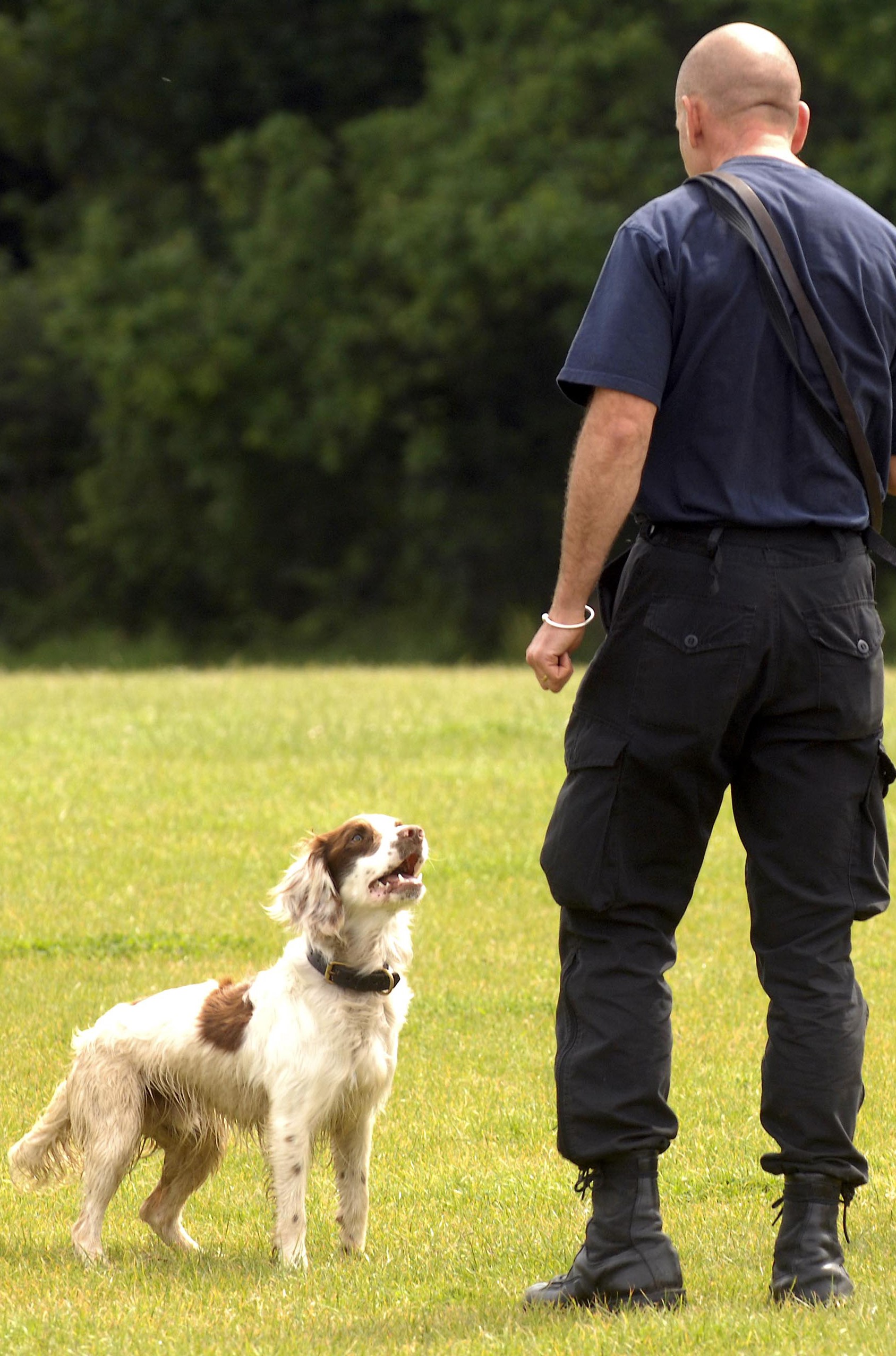
Pictured: Mr Bisson started working with Merlin in 2008.
As was the case with Thor, Mr Bisson has no complaints about Merlin, whose role included proactive searches – as opposed to the "passive" detection dogs you might see in an airport.
"A phenomenal nose," Mr Bisson said.
"Too many [successes] that I can even remember, working alongside the drugs squad."
However, his next German shepherd – Turbo – represented a slight change of pace.
"I'd said to the training school, who we'd built quite a relationship with, that I wanted a dog that would test my skills.
"Sometimes it's [a case of] be careful what you wish for – Turbo wasn't off-the-scale difficult but he was completely different to Thor in terms of temperament. He was bigger and stronger and he had a streak, where I had to pay more attention to the body language and everything else, just in case."
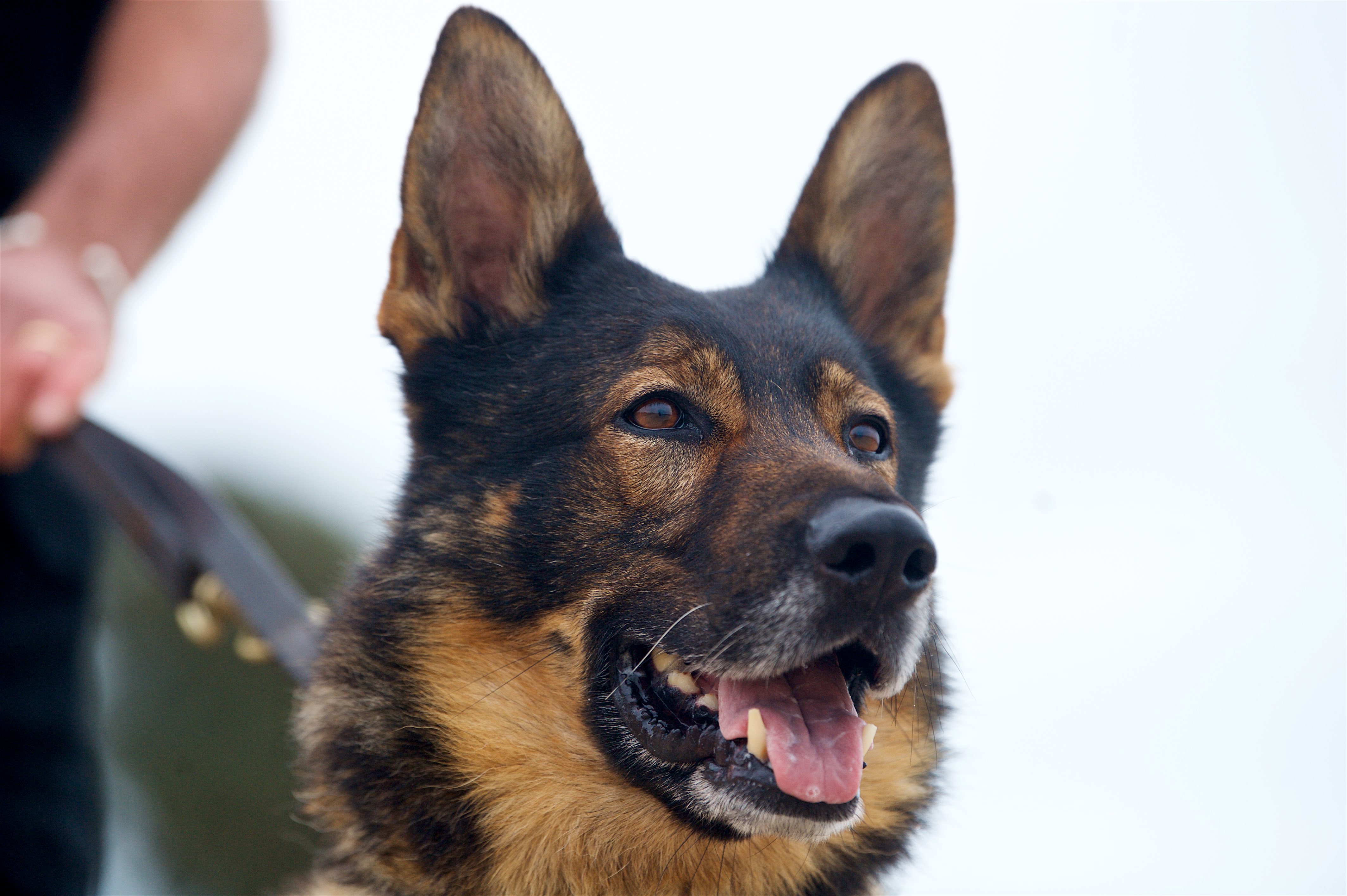
Pictured: Mr Bisson's second German shepherd, Turbo.
But not only did Turbo prove himself as another "phenomenal" tracking dog, Mr Bisson recalled an instance around 10 years ago in which his four-legged colleague demonstrated incredible capability and discipline.
Called away from another job to respond to an incident at the Grand Hotel, where two men had reportedly pulled a gun on a barman, the duo managed to track the suspects into a wooded area near West Park.
The gun would later turn out to be a very real-looking replica, but as far as Mr Bisson and Turbo were concerned at the time, they were about to confront armed individuals.
Mr Bisson continued: "I go in there, just as I see a head disappearing.
"I put my quick challenge in, let Turbo go and he goes bombing right out of sight.
"I hear barking, I hear this scream and I go running down. One guy is lying on the floor frozen in fear and the other is backed up against a tree. Turbo is right in front of him, barking at him, keeping him there.
"He hasn't bitten them because they've stopped and they are not offering him any aggression, but he's got one pinned and the other is lying on the floor giving himself up."
Pictured: Mr Bisson with Jack and Pippa, who have worked with him until his recent retirement.
Mr Bisson has spent the latter stages of his career alongside springer spaniel Jack and German shepherd Pippa, who he has worked with since 2016 and 2020 respectively.
With both dogs at different stages of their careers, and their handler now retired, Jack is going to go home with Mr Bisson as a pet while Pippa is going to work alongside an experienced handler in the Kent police force.
"It's what I know she wants and she will have a much better working life," Mr Bisson added, noting that Pippa is "in her prime".
So, what was the best part of being a dog handler?
"Everything," said Mr Bisson. "It's the best job in the force. You get to train these wonderful animals that we only know half of what they are capable of, you get to take them home, hopefully you get to see them deploy and all the training pays off.
"Because it's a specialist role you are going to be [involved] in some of the more exciting aspects of the job.
"In terms of what I wanted out of my career it's ticked every box and then some."
New police Shepherd is five tinnies tall
New recruit joins the paw-lice
From K9 to pet…a police dog's guide to retirement
WATCH: Police's new recruit re-paw-rting for duty
Comments
Comments on this story express the views of the commentator only, not Bailiwick Publishing. We are unable to guarantee the accuracy of any of those comments.